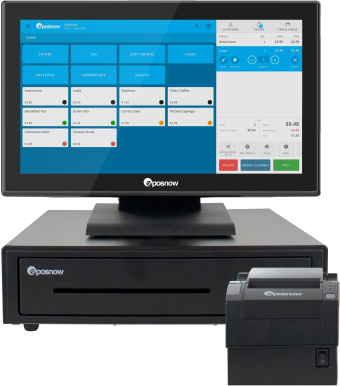Coffee shop business plan to help you kick off the cafe of your dreams
Did you know that 73% of people in the US drink coffee every single day? That’s steady, consistent demand right there. It’s no wonder coffee shops have become a staple in every neighborhood, where not just one, but often a few, pop up every year.
That doesn’t mean it’s easy, though. The coffee industry is competitive, and it can be downright cutthroat. To succeed, you’ve got to carve out your space and define what makes your café stand out. Coffee culture is divided into “waves,” and understanding where you fit is key.
Are you serving first-wave coffee? That’s the no-frills diner brew, dark roast, straight from the pot, functional, dependable, straightforward. Or maybe you’re aiming for the second wave. Think big chains like Starbucks that ruled the 2000s with flavored lattes and frappes. Or perhaps you dream of opening a coffee shop that serves the third wave of coffee. That’s where the bean gets its moment. Small-batch roasting, delicate flavor notes, and perfectly brewed cups.
Whichever wave speaks to you, every great coffee shop starts with a plan. A strong business plan can turn your vision into a reality. Here’s how you can create one.
Introduction to business planning for your cafe
To create a coffee shop business plan, you must first know exactly what it is.
A business plan is a document that outlines your company's vision, goals, and the strategies you’ll use to achieve them. This document essentially breaks down every step you plan to take to turn that brilliant lightbulb moment idea that you had, into a reality.
In the next section, we’ll talk about the benefits of having a business plan and why it’s essential for your success.
Why write a coffee shop business plan?
Here are some key reasons why writing a coffee shop business plan is a must:
-
You'll likely secure more funding: Imagine someone came to you with a business proposal. Invest in their idea, a new business that sells coffee. However, when you ask about their plans, they can’t give clear answers. They don't know when you’d get your money back, how they plan to get licensing and permits, or if other coffee shops in the area are turning a profit. You probably wouldn't invest, right? The same goes for your own potential investors. They're not going to invest in an idea that lacks detail or direction. A solid business plan shows that you’ve thought it through, you're serious, prepared, and can see a path to success.
-
You'll feel more confident and self-assured: The last few years haven't been easy for business owners. Five years ago, the world saw a global pandemic that completely disrupted businesses across all industries. Since then, we've faced recessions, cost-of-living crises, conflicts, and supply chain issues. It’s been tough. But in times like these, having a business plan in place is your anchor. It forces you to think through your strategies, anticipate problems with risk assessment and mitigation strategies, and adjust your approach to stay on track. In fact, LivePlan found that more than half (58%) of small business owners they surveyed, who had or were working on a business plan felt confident in their company, even amidst a major crisis.
-
You'll have a clearer path to success: Starting a business can feel like a massive undertaking. There are so many things to consider. From having a financial plan to what you'll include in your marketing strategy, there are so many spinning plates. But a business plan can give you a clear direction. It breaks down your vision and goals into actionable steps. Making it easier and more manageable for you to achieve everything you want. The results speak for themselves. Entrepreneurs with business plans are 260% more likely to launch and 30% more likely to grow.
How do business plans help coffee shops?
For aspiring coffee shop owners, a business plan is super important. It helps you get your ideas organized, attract potential investors, and stay on track as you bring your dream café to life.
Key elements to draft a strong business plan
Now, you should have a good understanding of what a coffee shop business plan is and why it's so important to have one. So it’s time to zoom in on the specific elements, or key sections, that make up a business plan so that you're better positioned to create your own.
Draft a solid executive summary
The executive summary is the first thing people will read, so it's your chance to make a great first impression. Here, you want to highlight your big ideas like your business concept, your mission (check out some mission statement examples), your brand identity, your target market, and what makes your coffee shop stand out. This section is all about showing why your shop is something special and worth investing in. It's short, sweet, and packed with the essentials to make readers want to know more.
Write a well-structured company description
Now, this is where you get into the nuts and bolts with a business description. Here, you'll explain how your coffee shop works. What’s the setup? Will it be a small coffee bar or part of a larger chain? Where’s it located? What kind of coffee and food will you offer?
You’ll also talk about the vibe of your brand, like the name, the logo, the colors, and the coffee shop experience you want your customers to have. It’s the practical stuff that gives people a clear picture of what your coffee house will actually look and feel like.
Analyze the market for coffee beans
Market research helps you get a clear view of the coffee industry, your competition, and consumer preferences. By looking into coffee market trends, you can find out what customers are loving, what they're not, and where there might be a gap in the market.
Start by looking at industry benchmarks, like the average prices for coffee beans, quality standards, market size, and supplier agreements. You'll also want to do some competitive analysis to see who your local competitors are, what types of coffee they offer, and how much they charge. This will help you figure out how to position your coffee shop in a way that stands out while still meeting the demand.
A strong market analysis will give you the insights to choose the right coffee beans, set your pricing, and fine-tune your menu to attract your target customers.
Outline your ideal target market
Speaking of your target customers, it's really important that you know exactly who these people are. Are you planning on attracting the health-conscious consumers who prefer organic, low-sugar, or plant-based milk options? Or maybe you're aiming for the busy professionals who need their caffeine fix in a hurry?
To find this out, you're going to want to create customer profiles and personas to really understand the specifics of your ideal market (like their age, lifestyle, and preferences) to help you tailor your coffee offerings, your menu planning, menu pricing, and even shop layout.
Explain your team management plan
Coffee shop staffing is quite unique because your baristas oftentimes take on a lot of different roles. They make specialty coffees. they're salespeople upselling your pastries. They help with food prep.
So, you'll need to figure out who will be responsible for key areas like research and development of new coffee drinks and brewing methods. Will you outsource food production? Will baristas also be trained to prepare food? Will you have a senior management team?
It’s also important to consider who will handle your coffee shop marketing and PR. Will your manager take on social media and branding, or will you hire someone specifically for that?
Plus, you'll need to decide on staffing details. Are you hiring full-time, part-time, or seasonal workers? What will your staff training programs look like? What benefits and pay will you offer?
Describe your cafe operations management
This is where you get into the finer details of how your cafe will actually run day-to-day. You’ll need to think about everything from opening and closing hours to employee and inventory management. In this section you'll include:
-
Your opening hours
-
Staffing schedules
-
Inventory management
-
Supplier management
-
Operational flow
-
Cleaning and maintenance plans
This section is all about showing that you’ve thought through the details and have a plan to keep everything running like clockwork.
Set a clear financial planning
From forecasting sales to keeping track of costs, a solid financial plan will guide you every step of the way.
Sales forecast
Start by estimating how much you expect to make, both monthly and annually. Think about factors like foot traffic, average sales per customer, and seasonal fluctuations.
Financing and loans
Will you apply for a loan, seek investors, look into other small business financing options, or use your own savings? Outline how you plan to fund your coffee shop.
Budget your startup costs and operating costs
Detail all your startup expenses, including equipment cost analysis (espresso machines, grinders, etc.), inventory (coffee beans, milk, etc.), and any licenses or permits. Ongoing operating costs include food costs, labor costs, rent, utilities, and insurance. This will help you budget.
Create a solid cash flow statement
A cash flow statement shows how money moves in and out of your business. You need to track your inflow (sales) and outflow (expenses) to ensure you're staying profitable.
Profit and loss statements
P&L statements show your total revenue, subtract your expenses, and reveal your profit. This is where you do your profit margin calculation, so it’s crucial to track this regularly. Having a balance sheet and financial projections will also give you a clear picture of your financial health.
Design a menu for your coffee shop
A sample menu is a must in your business plan. You need to think about the basics, we're talking menu items like drip coffee, iced coffee, espresso drinks, and teas, but here’s where you can get creative. Don’t just settle for the usual. You want your shop to stand out, right?
Having a unique selling proposition with different drinks is a way to build your identity. Get bold. Create signature drinks, team up with the best roasters, or introduce seasonal menu adaptations. It keeps things fresh and exciting and draws customers back in.
Your sample menu forces you to think about how to run the whole show. How are you going to store all that milk and coffee? What equipment do you need to brew your perfect espresso or serve up that nitro cold brew? Get clear on these details now, or you’ll be stuck later.
Decide on the marketing and branding for your coffee business
Your marketing plan is where you figure out how to get people in the door and keep them coming back. You can include it in your sales plan or make it its own section.
Start by thinking about how you’ll spread the word. Will you post daily specials on social media? Partner up with other local businesses and host local community engagement events? Focus on niche market targeting? Maybe you'll want to look into partnership opportunities with influencers? Or perhaps do campaigns around your sustainability practices?
Don’t forget about keeping your customers with customer retention tactics. Will you offer loyalty programs or surprise your regulars with a free treat on their birthday?
Present your plans for growth
In this section, you’ll lay out how you plan to grow your business. Will you expand your menu or introduce new revenue streams, like selling merchandise or offering catering services? Think about ways to increase profits and attract more customers. Do you have franchise potential in mind? If so, outline your plan to scale and open new locations.
Gain all the advantages of a POS system with detailed, flexible, downloadable reports, and so much more.

How to present your cafe business plan
Presenting your cafe business plan is like telling a story – you want to keep it simple, interesting, and clear. Using a business plan template will help you cover all the important parts, so nothing gets left out and your plan makes sense to anyone reading it.
Elevate your operations management with advanced software
Using advanced POS software can seriously improve how your cafe runs. It does more than just handle payments, it helps you manage your entire operation.
For example, a cafe POS system connected to your supply chain can keep track of your stock and alert you when it’s time to reorder. This way, you won’t run out of items or overstock on things you don’t need.
Modern card machines make payment faster and more secure. They’re easy to link with your POS system, which means quicker checkouts and fewer mistakes. They also ensure you can accept payments in all the forms your customers are using, like eWallets. On top of that, the system can give you valuable data on sales, inventory, and even employee performance.
With a stationary countertop or mobile POS, you’ll spend less time on manual tasks and more time focusing on growing your cafe. Better software means better efficiency, fewer mistakes, and a smoother customer experience strategy for both you and your customers.




